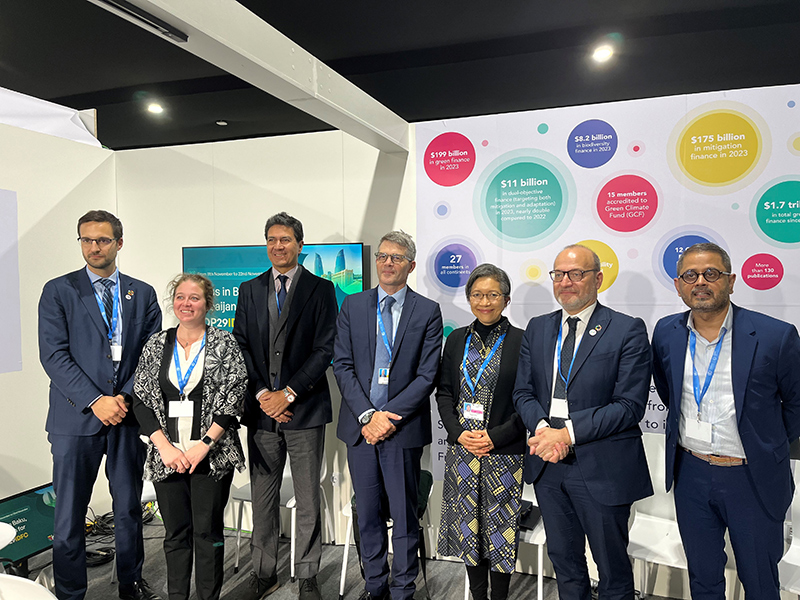【COP29 Side-Event】Next-Gen Climate Finance Enabling system change for climate and sustainability
Day:2024.12.16
event |
| identity | belong to | title |
|---|---|---|
| Ryosuke Takahashi | Operations Strategy Department | Assistant Director |
Date: 2024/11/13
Sponsors: International Development Finance Club (IDFC)
Location (Name of Pavilion):IDFC Pavilion
| identity | belong to | title |
|---|---|---|
| Megumi MUTO | JICA | Special Advisor to JICA President |
| Javier DIAZ | Bancoldex(Banco de Comercio Exterior de Colombia S.A. ) | President |
| Serge EKUE | BOAD (West African Development Bank) | President |
| Rémy RIOUX | AFD (Agence Française de Développement) | CEO |
| Tamsin Ballard | Principles for Responsible Investment (PRI) | Chief Initiatives Officer |
| Eric Usher | UNEP FI | Head |
| Melanie Robinson | WRI | Global Director, Climate, Economics and Finance |
| Nancy Vandycke | World Bank | Senior Climate Change Advisor |
| Claire Eschalier | Mainstreaming Climate in Financial Institutions secretariat | Head |
| Arghya Sinha Roy | Asian Development Bank (ADB) | Director for Climate Change Adaptation |
| Amy Lewis | Inter American Development Bank (IDB) | Senior Operations Specialist |

Group Photo
scroll